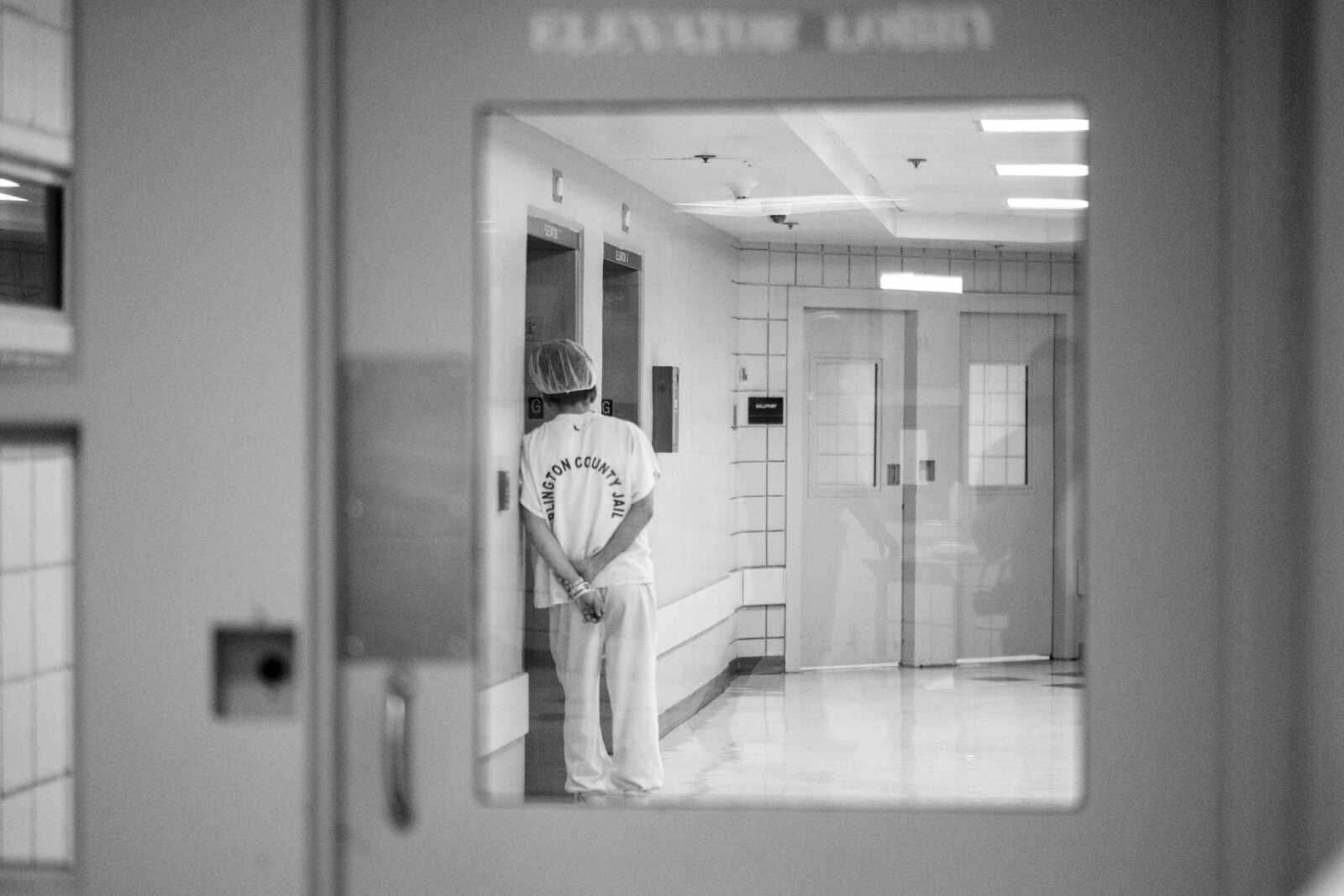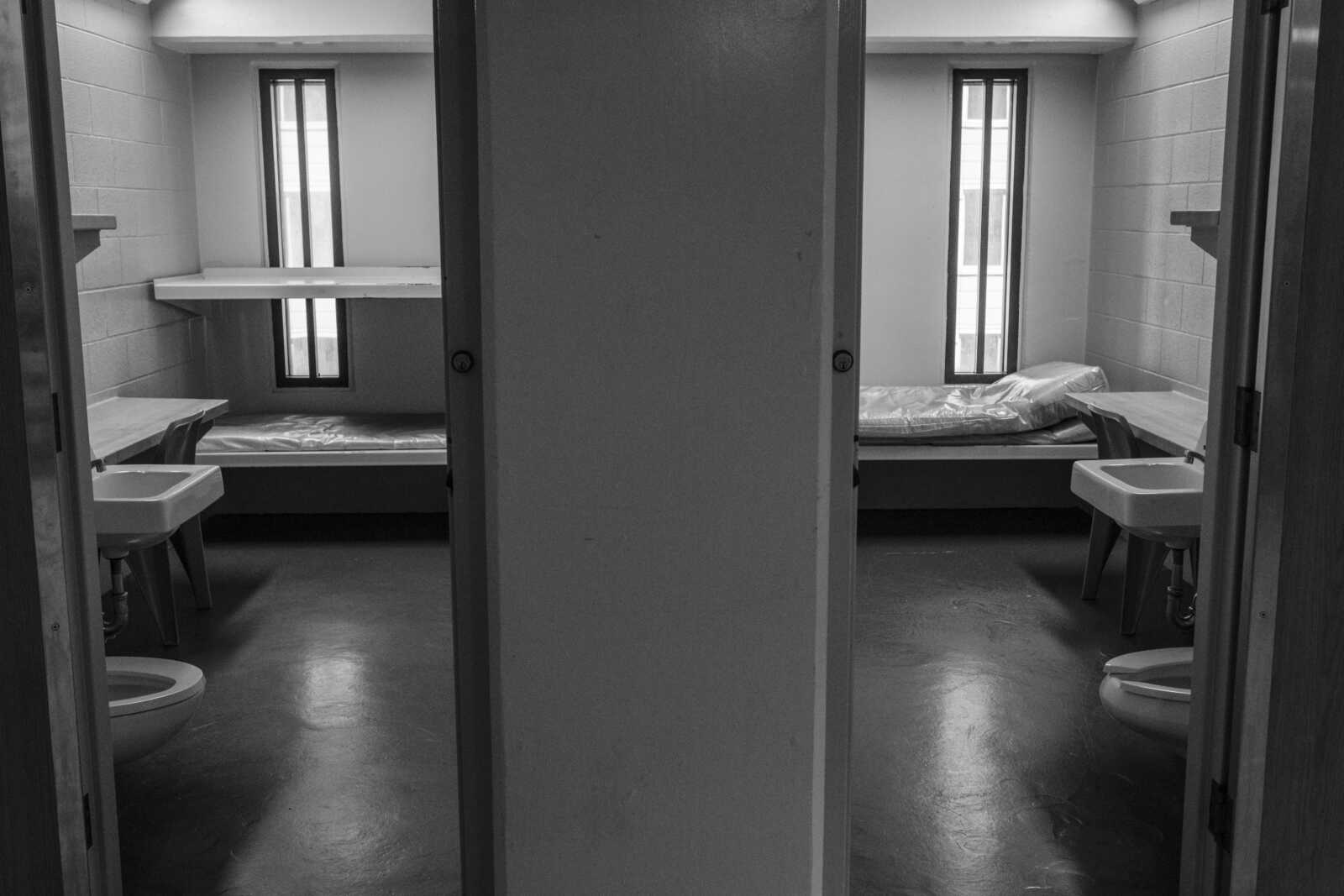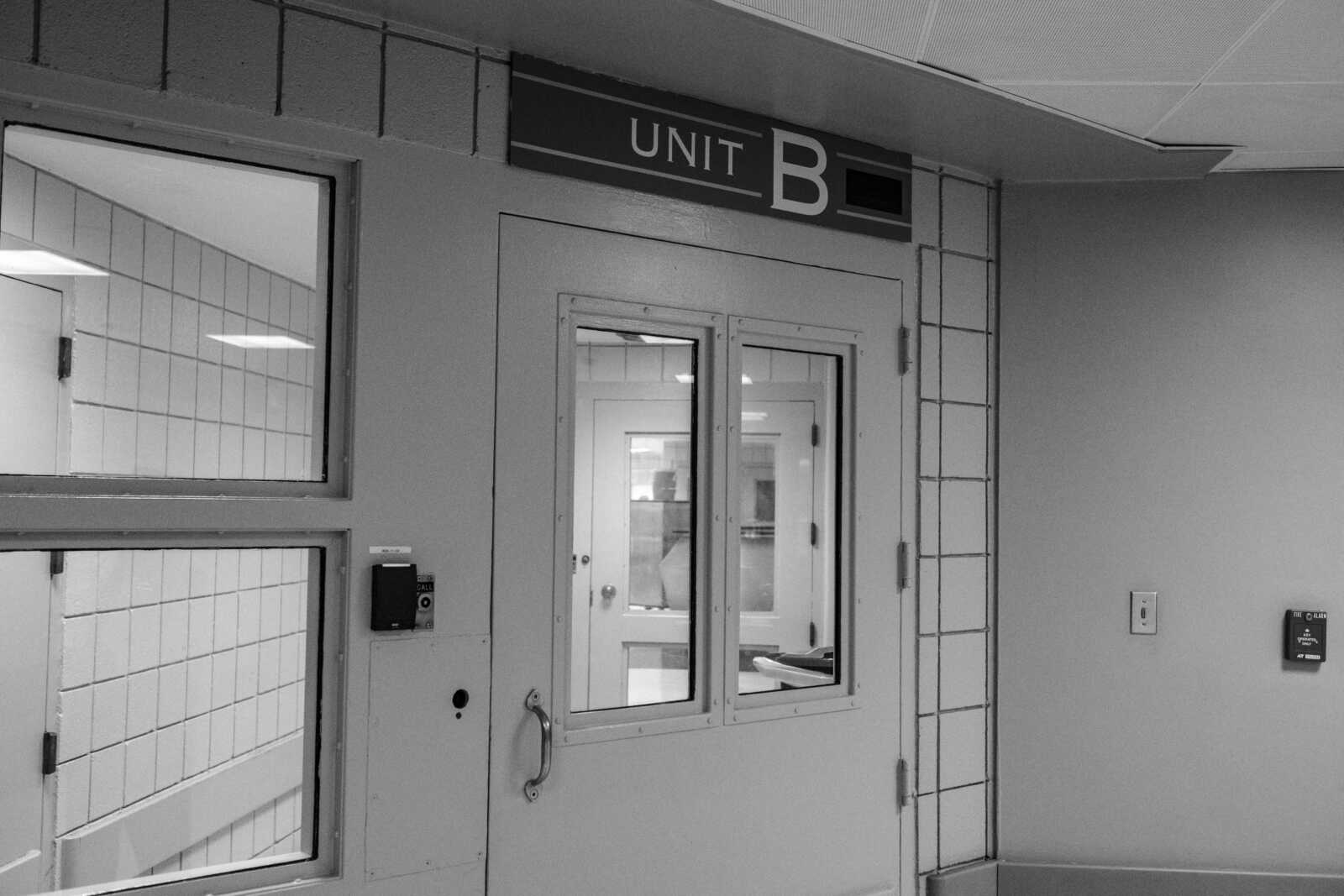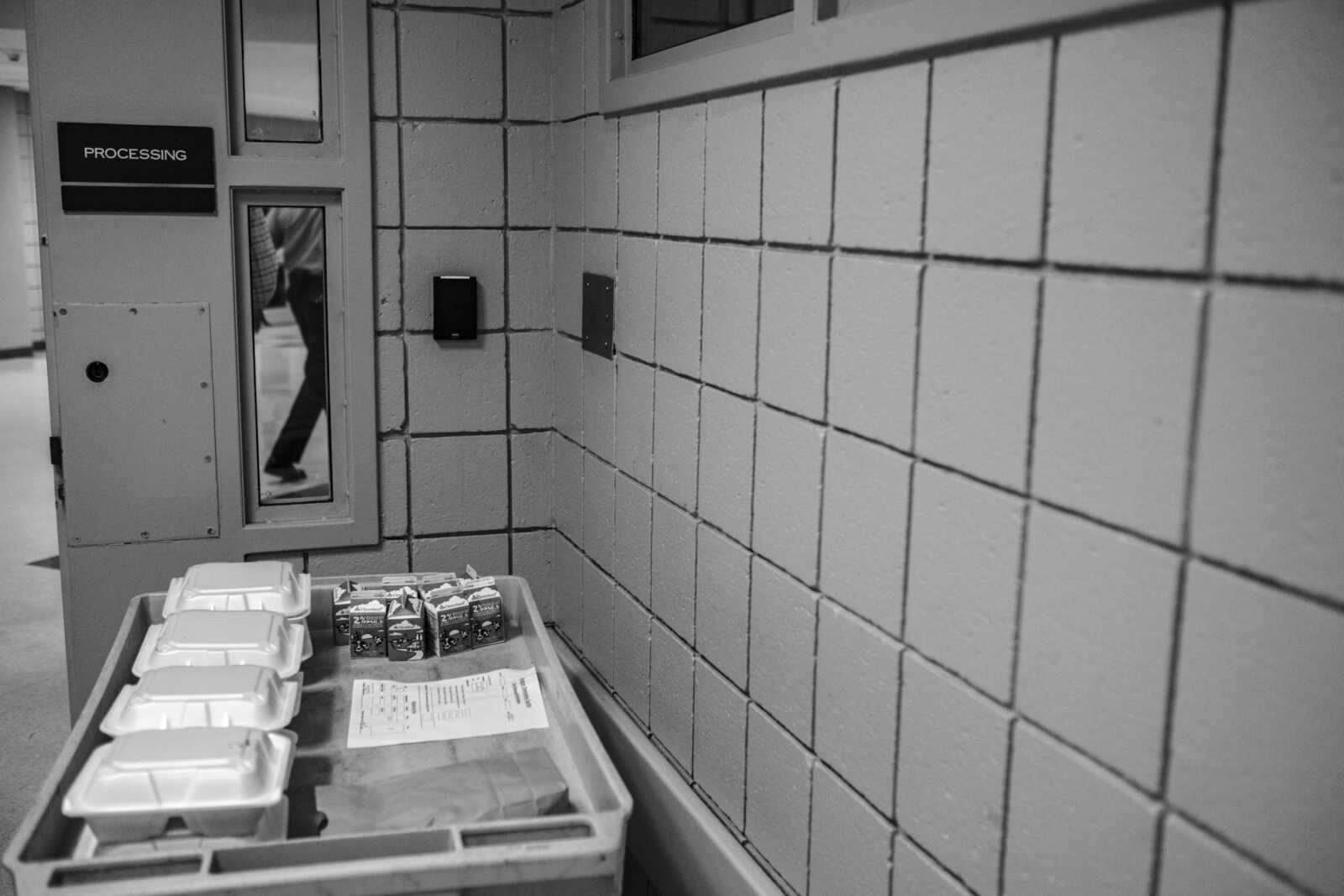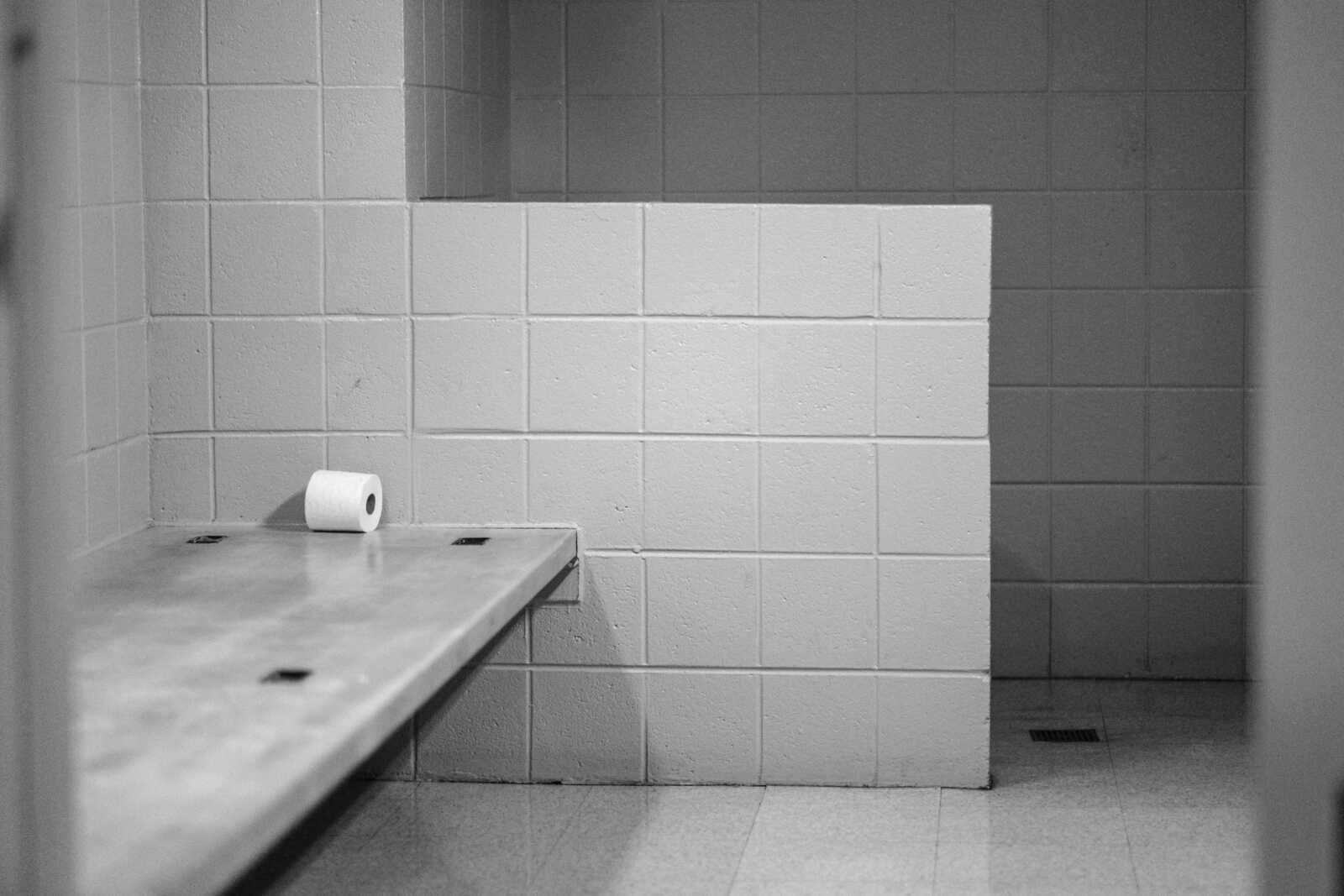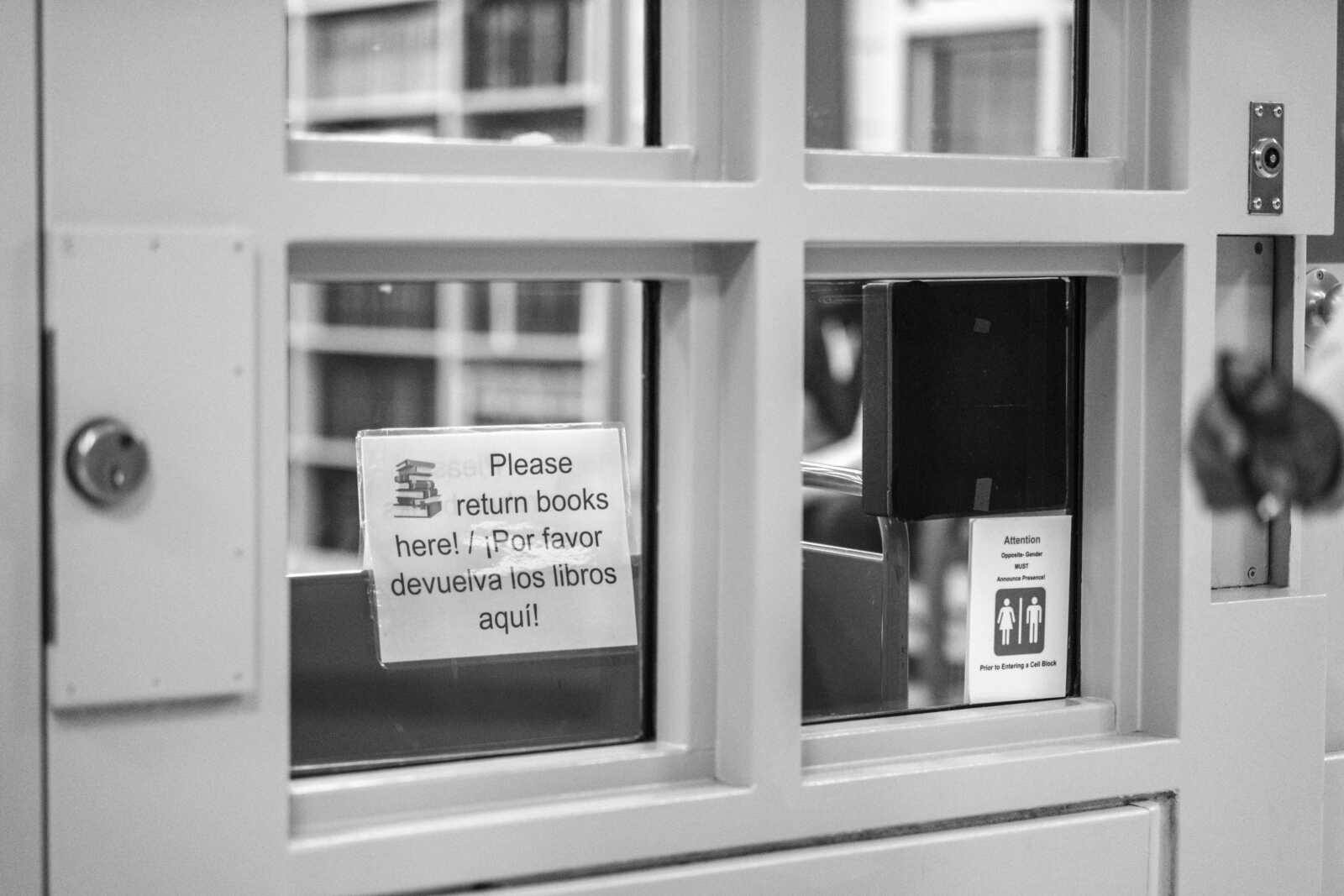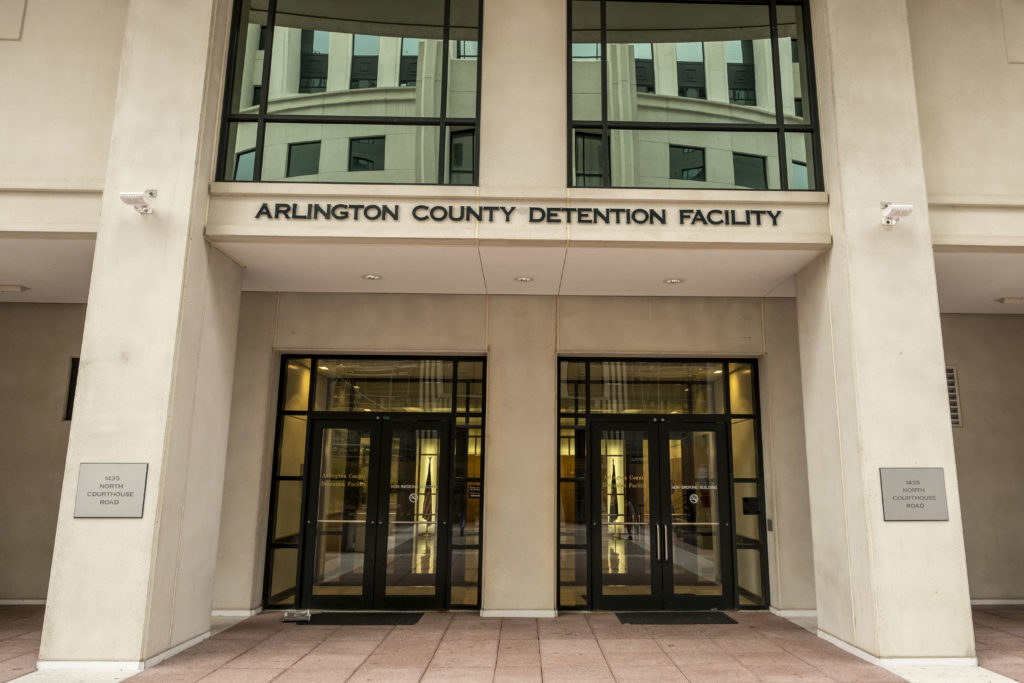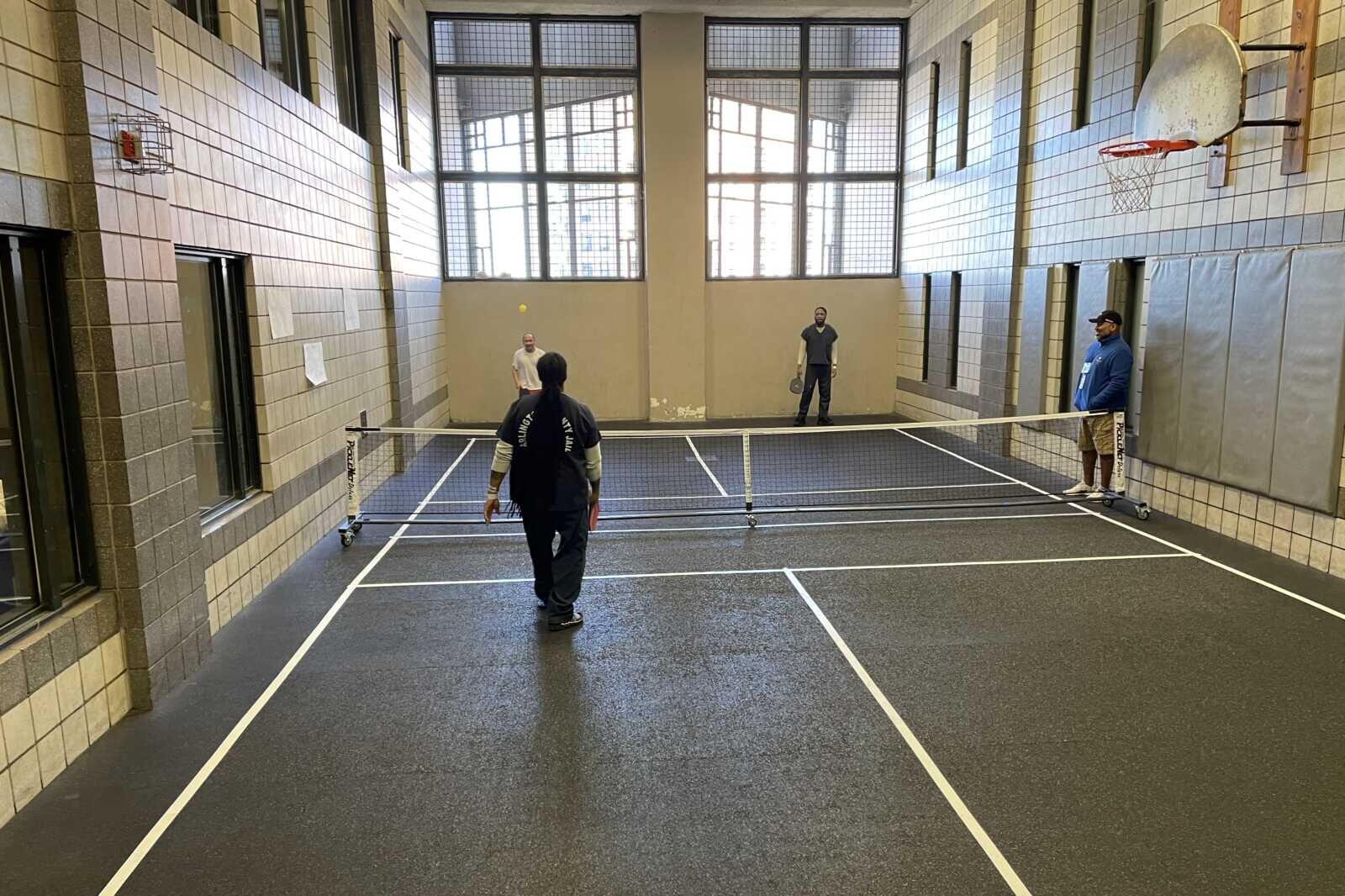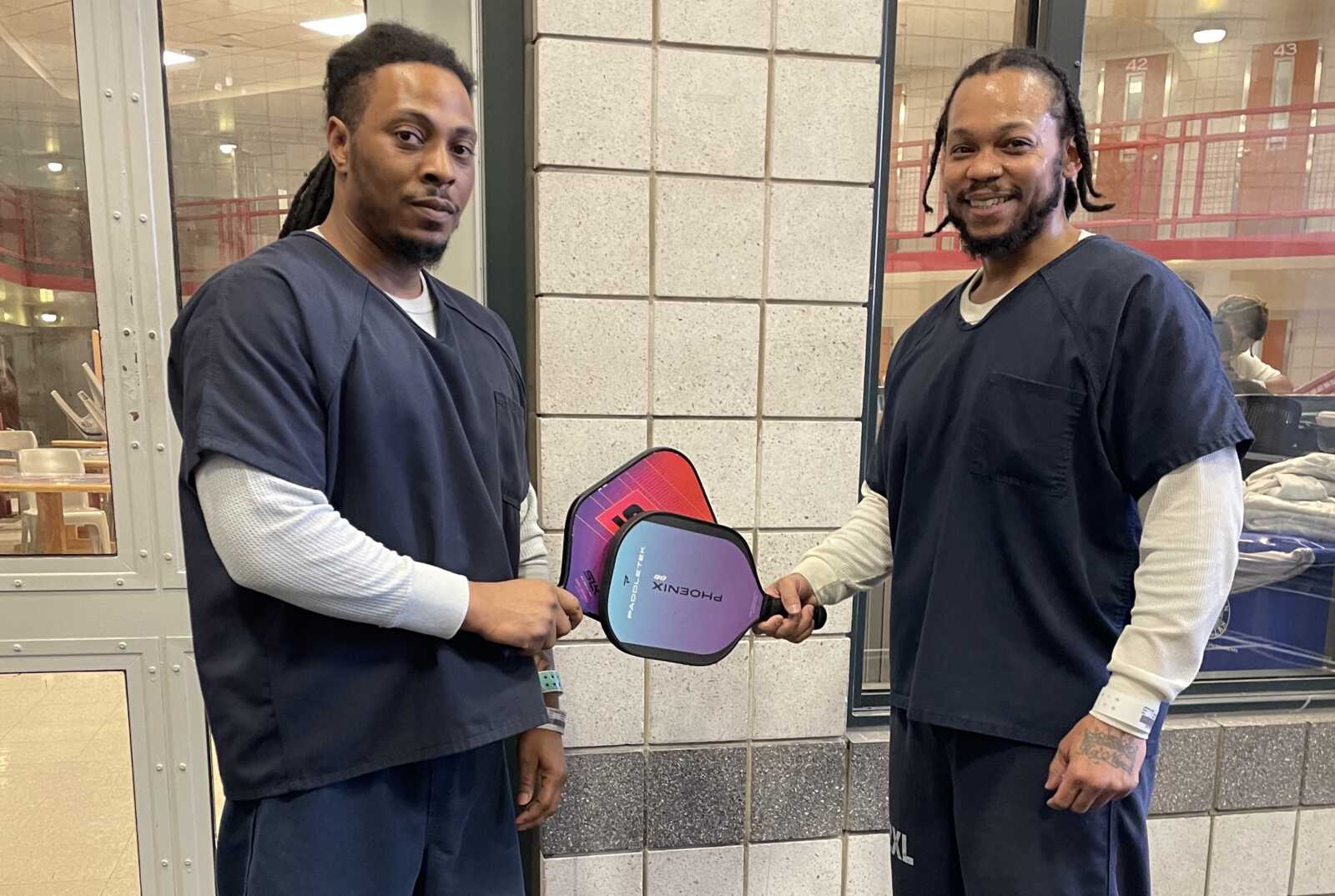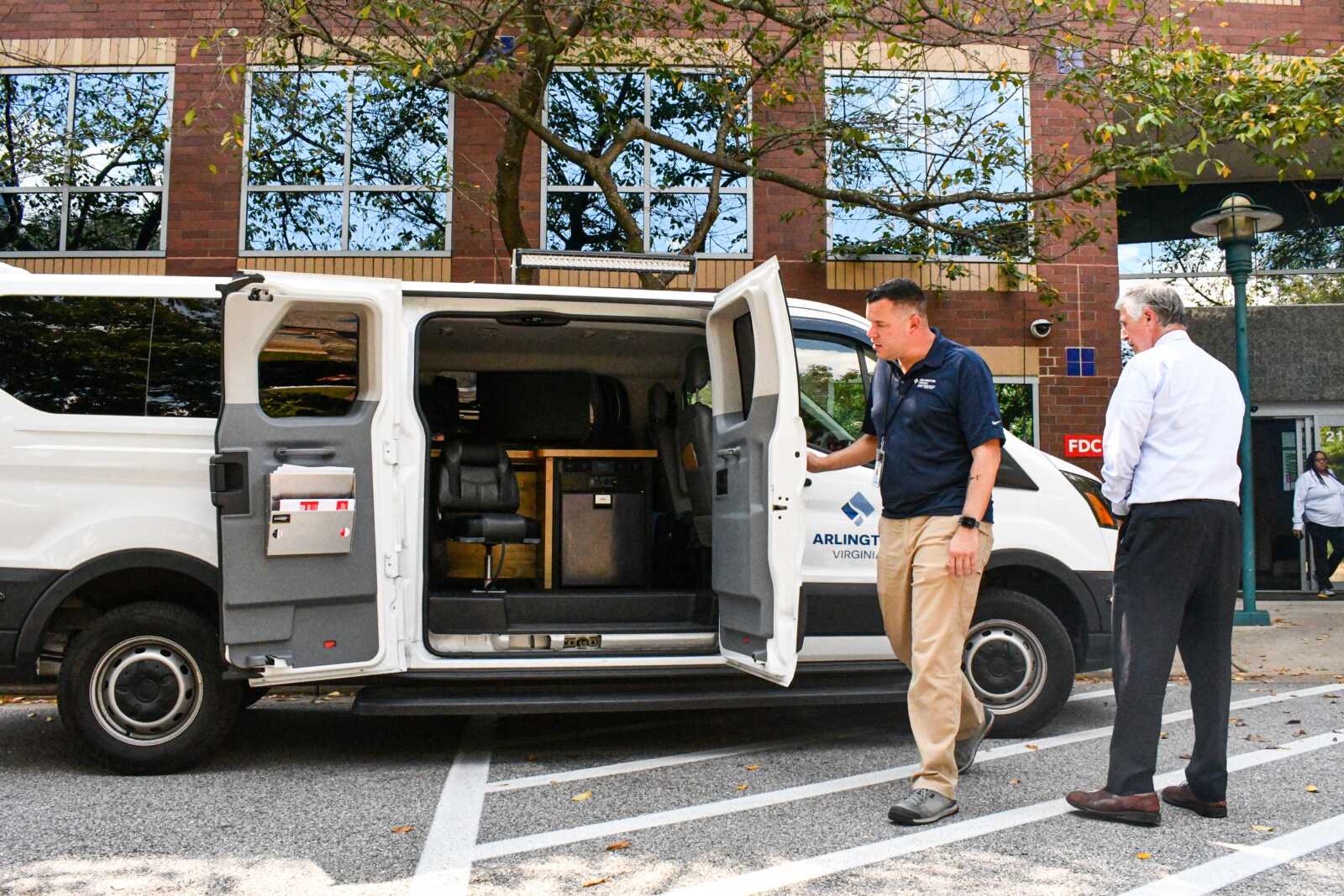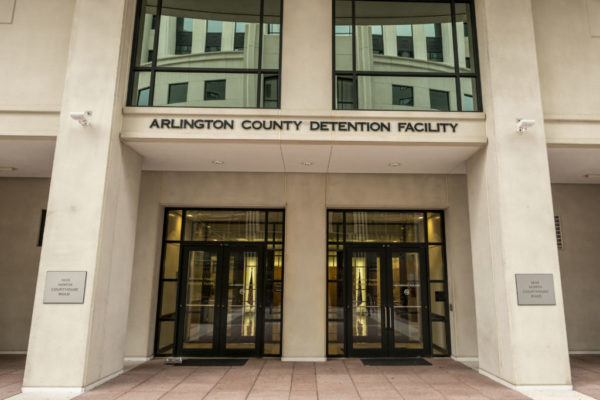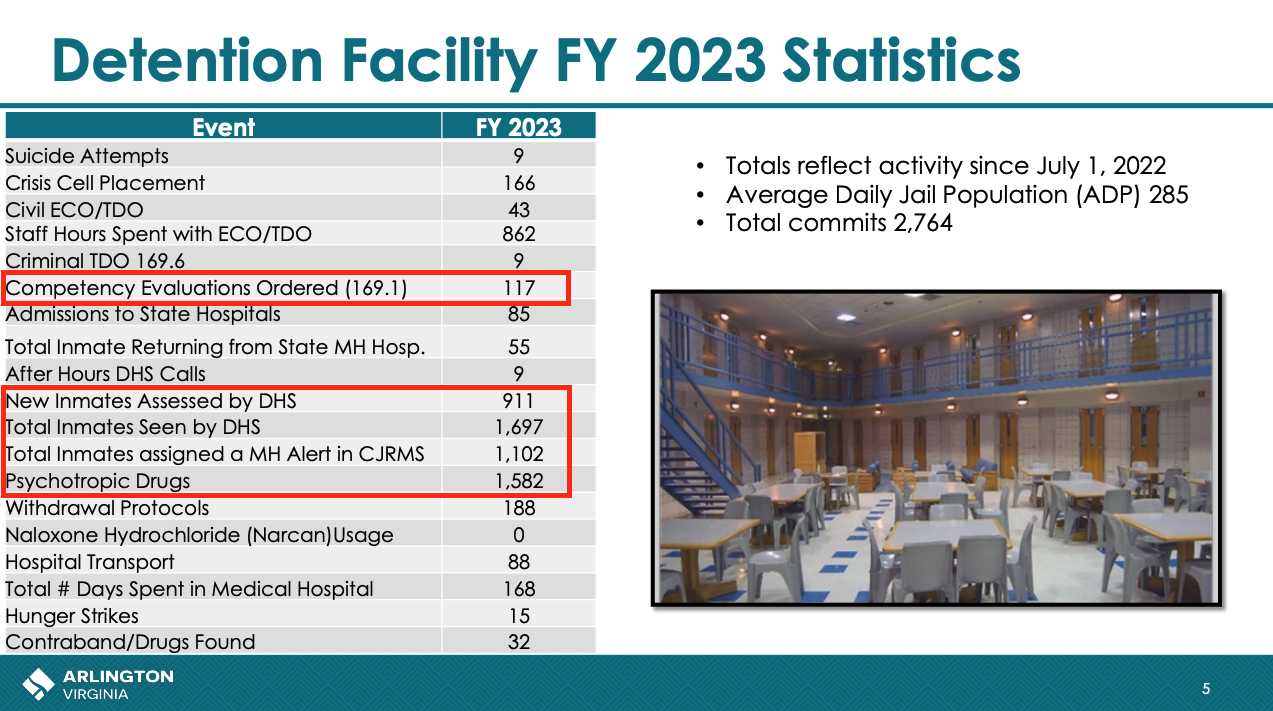This reporting was supported by the ARLnow Press Club. Join today to support in-depth local journalism — and get an exclusive morning preview of each day’s planned coverage.
The Arlington County Sheriff’s Office is facing mounting pressure from personnel, inmates and the NAACP to address worsening conditions at the county jail.
Current and former deputies, along with a former inmate, claim that chronic staffing shortages inside the jail have led to inmates being confined to their cells for up to 21 hours daily, deputies not following proper protocols, the mismanagement of medication dosages and inmates not being allowed to take showers.
A jail-based staff-led anonymous survey obtained by ARLnow chalks up the retention challenges to issues with leadership, salary, and work conditions, particularly mandatory overtime.
Sources caution that without intervention, the ongoing staff shortages at the jail pose a significant safety risk to deputies and inmates.
Nine deaths in eight years
On Oct. 2, 2020, Arlington County Jail inmate Darryl Becton, 46, was found unconscious in his cell at 4:17 p.m.
Twenty-eight minutes later, medics pronounced him dead at the scene. His death, later attributed to hypertensive cardiovascular disease, complicated by opiate withdrawal, generated significant county and community attention.
In the wake of Becton’s death, his family filed a $10 million wrongful death lawsuit against former Arlington County Sheriff Beth Arthur, Corizon Correctional Health — the jail’s now-former medical provider — and four medical staff members, citing negligence in properly monitoring his high blood pressure and withdrawal symptoms.
A Corizon nurse was charged in connection with Becton’s death but was later found not guilty.
In response, the jail hired a new medical provider, updated its safety protocols and announced it would equip some inmates with biometric wrist monitors tracking their vital signs. Current Sheriff Jose Quiroz piloted these wrist monitors this fall, distributing them to inmates in the jail’s medical unit.
“We’re going to pilot it with the folks in our infirmary who are, in my eyes, the most critical, the most vulnerable, whether it’s pre-existing medical conditions or anyone going through withdrawals or detox,” Quiroz told ARLnow during an interview in September 2023. “And so, I’m definitely committed to that.”
Like Becton, Jermaine Culbreath, a former Arlington County Detention Facility inmate, also suffers from high blood pressure. Although prescribed blood pressure medication during his incarceration, he told ARLnow he did not receive a wrist monitor.
Culbreath also alleges that on multiple occasions, the jail’s medical staff either failed to deliver his medication promptly in the morning or did not deliver it at all.
“If they did give it to me, they’d give me the medicine in the afternoon,” he told ARLnow. “Like, I’m supposed to take it in the morning because if I try to take this medicine after a certain hour, I can overdose because this is like me taking it twice.”
Over the last eight years, nine inmates — many of whom previously experienced homelessness — have died while in the custody of the Sheriff’s Office. The two most recent incidents this year involved 73-year-old Abonesh Woldegeorges and 55-year-old David Gerhard, both of whom were found unresponsive in their cells.
Gerhard died after going into cardiac arrest, and Woldergeorges died after falling out of her bunk and hitting her head, according to the Sheriff’s Office. Investigations into both cases are currently ongoing.
How staff shortages figure into current conditions
While it’s difficult to say they are directly related, sources, including Culbreath and retired Arlington County sheriff’s deputy Wanda Younger, trace the recent deaths and lapses to staffing shortages within ACSO and the impact they have on jail operations.
“There have been nine deaths in eight years,” Younger told ARLnow. “This is showing signs of the exacerbation that’s happening with the lack of staff, the daily shortages and these daily lockdowns.”
Situated directly opposite the Arlington County Justice Center on N. Courthouse Road, the 11-story jail, on average, houses about 364 inmates who are managed by a team of approximately 270 sworn deputies and civilian staff.
At any given time, the jail is supervised by up to 35 personnel — including 30 deputies, four sergeants, and one lieutenant — who work 12 to 12.5-hour shifts, Maj. Jonathan Burgess told ARLnow during a tour of the detention facility in September 2023.
Theoretically, 35 deputies per shift would be ample, but daily staffing levels are reportedly lower than that, says Younger, referencing conversations with those currently working inside.
“I’ve been told that the Sheriff’s Office is short-staffed almost on a daily basis,” she said.


